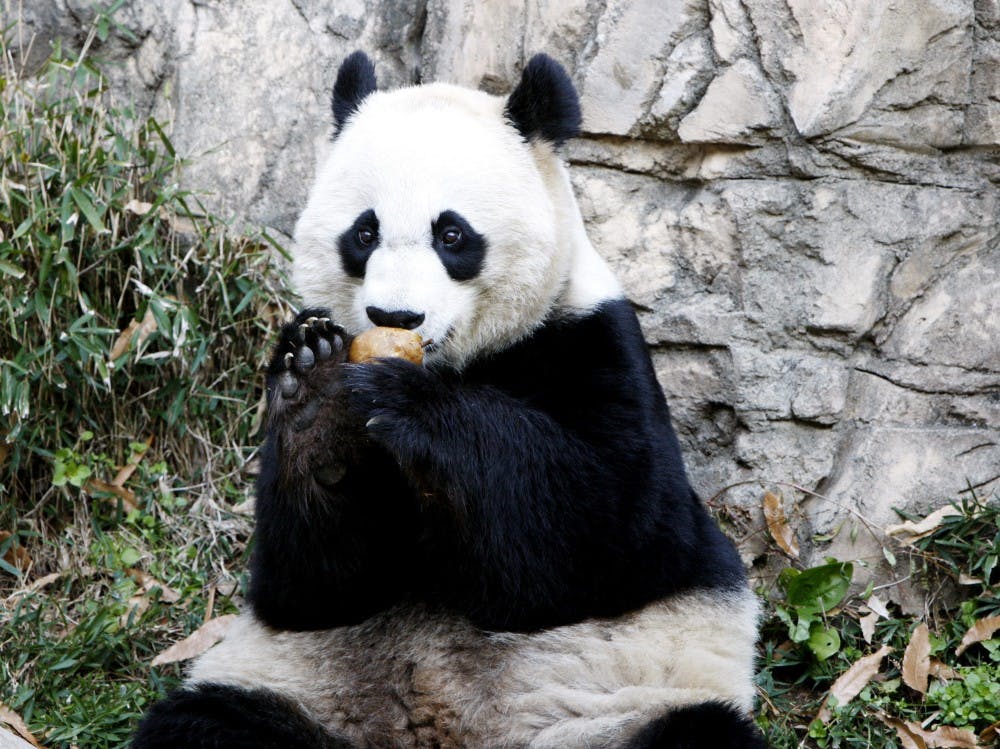A giant panda at the National Zoo gave birth to twins on Saturday, earning national headlines.
The giant panda, perhaps more than any animal, has become the face of endangered species. They are cute, mostly herbivorous and relatively large. And — let's be honest — we wouldn't care about them otherwise.
Case in point: the Chinese sturgeon is designated as a “national treasure” by the Chinese government. They can grow to be five meters long and weigh a half-ton. There might be less than a thousand adult Chinese sturgeons in the world, but they have been around for over one hundred million years.
Yet you almost certainly haven’t heard of them. Some of this might be because they live thousands of miles away, but that has not stopped the giant panda and African elephant from becoming well known.
The hard truth is that sturgeons are neither spectacularly cute nor fierce nor ugly, so it is difficult to rally people behind their conservation.
Closer to home, consider the case of the Carolina heelsplitter, an endangered mussel species in our state. Normal people don’t give much thought to shellfish, making it incredibly hard to build a movement around their preservation, but they probably should.
Mussels are incredibly effective at filtering river water and a single animal can purify 18 gallons of water every day. This filtration also makes them highly vulnerable to pollution since they can accumulate a lot of pollutants.
As such, the range of the Carolina heelsplitter has declined from river systems throughout the Carolinas to less than a dozen populations.
While not cute by any means, those mussels provide a valuable ecological service that helps to clean up the entire river system. But even though they live in this state, you will still hear a lot more about giant pandas than mussels as the media briefly talks about endangered species over the next week.
Ultimately, that will need to change if we want to preserve local endangered species. Americans have a good record of saving bison, alligators, and eagles. But smaller, less impressive animals can also have major ecological roles.
If we want to keep the ecosystems functioning, people will ultimately need to care about and be willing to sacrifice for all threatened species.

